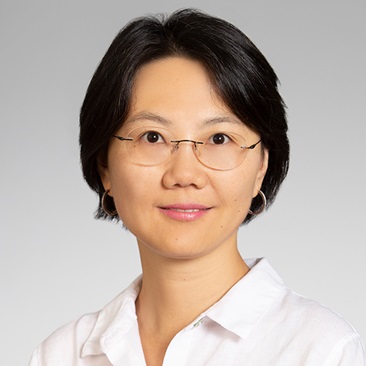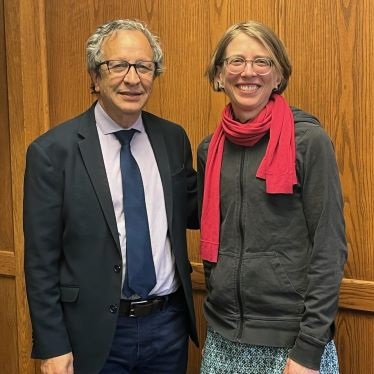Syracuse University Announces the Establishment of New Autonomous Systems Policy Institute
June 19, 2019
On May 6, 2019, Syracuse University hosted the Symposium on Autonomous Systems Policy, Law, and Governance. The symposium convened faculty, scholars and experts for a daylong discussion about governance opportunities and challenges prompted by the rapidly developing field of autonomous systems.
In his opening remarks, Syracuse University Chancellor Kent Syverud announced the establishment of the Autonomous Systems Policy Institute (ASPI). “We expect to be a leading voice at the intersection of autonomous systems policy, law, and governance in the world,” shared Chancellor Syverud. The Institute will be led by Jamie Winders, professor of geography.
Autonomous systems “act independently of direct human control and in unrehearsed conditions” by analyzing data to determine actions or provide feedback. Autonomous systems include such technologies as self-driving cars, smart thermostats, and search-and-rescue drones. The autonomous nature of these technologies, and the data required to make them work, present both challenges and opportunities.
ASPI will provide critical insight into this rapidly growing field where technological developments outpace policy frameworks, and difficult questions concerning privacy, ethics, and exclusions simultaneously emerge.
Trimming excessive harms to increase in-rush capacity
Keynote Speaker Travis Mason, Maxwell alumnus and vice president and head of regulatory and certification for Urban Air Mobility at Airbus, outlined the key hurdles to navigate to ensure the implementation of ever-changing and evolving autonomous systems will be successful, sustainable, and beneficial - across the board.
“The breadth of this change will touch nearly every country, and the depth of this change will impact how we live, how we work, how we treat disease, how we exchange dollars and cents, and even how we wage war,” explained Mason ’06 BA (PSc). “No matter how brilliant these innovations are, if our cultural, political, and physical infrastructure systems fail to withstand the in-rush of change, failure will occur.”
According to Mason, achieving this level of preparedness requires anticipating what’s coming next and trimming four key excessive harms: bias, haste, specialization, and inattention to detail.
“If we're not careful to address today's bias and prejudice, it will leak into our systems tomorrow,” heeded Mason, who cautioned that data sets, training data, and machine learning are already becoming so complex, it will be increasingly difficult to spot bias built into these systems.
Excessive haste - championed in Silicon Valley with a “move fast, break things” mantra - often leads to more time wasted in the long term due to the cleanup required when systems break down. Ensuring that future technologies have the proper infrastructure in place to thrive is essential.
Trimming the third harm - excessive specialization - allows innovation to flourish as people explore beyond their individual corners. “If everyone is busy working on their tiny piece of the puzzle,” cautioned Mason, “over time, there will be fewer and fewer people who understand how the puzzle is being put together.” Hyperspecialization and silo mentality lead to people who overlook both opportunities and risks.
Excessive inattention to detail is a shortcoming both prevalent and unacceptable. “Think about it,” said Mason. “How could a social networking company, where data is so critical to its existence, fail to secure data? How can banks, whose central role is to move money, fail to understand where that money is being moved? How could scooter companies forget about helmets?” Having visionaries is great, said Mason, but attending to details is critical to our future.
Multiple perspectives for an expanded process
The symposium continued with a series of panel discussions that explored the technology and design, policy and governance, and broader social implications of autonomous systems. Panelists represented a cross-section of stakeholders and experts that included speakers from public, private, and nonprofit sectors.
“Here today, what I really appreciate about the common theme presented by our speakers and panelists is that these systems will have an effect on every one of our lives,” shared David M. Van Slyke, dean of the Maxwell School. “And the effects will be potentially positive, though guaranteed to have some negative externalities. The key question is ‘What can we do to harness the potential upsides while limiting the downsides?’”
Join us
Work will begin this summer to define a clear mission and vision for the newly formed Autonomous Systems Policy Institute, as well as to take preliminary steps to form a business plan.
Sign up to stay informed about ASPI’s latest news and developments.
ASPI Symposium, May 6, 2019
#ASPI
Welcome and Opening Remarks
David Van Slyke, Dean of the Maxwell School, Syracuse University
Kent Syverud, Chancellor, Syracuse University
Jamie Winders, Director, Autonomous Systems Policy Initiative, Chair and Professor
of Geography, Syracuse University
Keynote Address
Travis Mason ’06 BA (PSc), VP and Head of Regulatory & Certification, UAM, Airbus
Panel 1: Technology and Design
Moderated by Jamie Winders
Pam Cohn, Managing Partner, Ascension Global
Sam Edelstein, Chief Data Officer, City of Syracuse
Louise Manfredi, Assistant Professor, Industrial and Interaction
Design, Syracuse University
Senem Velipasalar, Associate Professor, Electrical Engineering and Computer Science, Syracuse University
Panel 2: Policy and Governance
Moderated by David Van Slyke
Peter Blanck, University Professor and Chairman, Burton Blatt Institute, Syracuse University
Jamie Boone, Vice President, Government Affairs, Consumer Technology Association
Tina
Nabatchi, Joseph A. Strasser Endowed Professor in Public Administration, Syracuse University
Austin Zwick, Assistant Teaching Professor, Public Affairs, Syracuse University
Panel 3: Broader Social Implications
Moderated by Jamie Winders
Suho Han, Assistant Professor, Entrepreneurship, Syracuse University
Ingrid Erickson, Assistant Professor, Information Studies, Syracuse University
Nicol
Turner Lee, Fellow, Center for Technology Innovation and Governance Studies, Brookings Institution
Andrew Maxwell, Senior Program Manager, C&S Companies
Closing Remarks
David Van Slyke
06/19/19
Related News
School News

Apr 22, 2024
Commentary

Apr 13, 2024
School News

Apr 10, 2024
School News

Apr 9, 2024